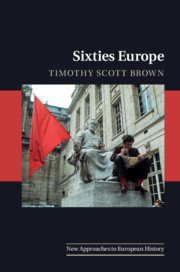4 - 1968 in Three Europes
Published online by Cambridge University Press: 16 July 2020
Summary
This chapter examines the key political events of 1960s Europe, focusing on how different local conditions shaped the possibilities of activism. Beginning with a consideration of student radicalisms in Poland and West Germany, it moves on to events in France and Czechoslovakia. Whereas the French May saw a temporary but powerful alliance between students and workers, the Prague Spring was crushed by a Soviet invasion. Yugoslavia, too, saw attempts to regenerate socialism along the lines of workers’ democracy, but in a context where “self-management” was official (but unrealized) state doctrine. Hungary continued to suffer under the effects of its own aborted attempt to steer toward industrial democracy. In Italy, student and industrial militancy reached a pitch equaled nowhere else in Europe. Right-wing dictatorships in Spain, Greece, and Portugal repressed but failed to fully subjugate emancipatory movements of students and workers. Portugal saw a massive and sustained antiauthoritarian explosion that placed it at the forefront of European revolutionary movements. Activists pursued a “politics of truth” that challenged official lies and put forward emancipatory counternarratives.
Keywords
- Type
- Chapter
- Information
- Sixties Europe , pp. 102 - 188Publisher: Cambridge University PressPrint publication year: 2020

